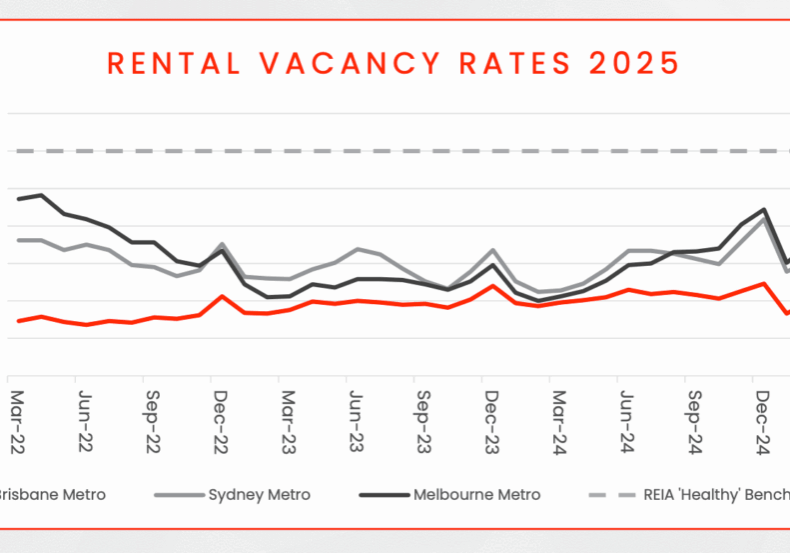10 FOMO errors you should avoid when the property market is running hot

With the property market in Brisbane seeing massive levels of growth recently, it can be very tempting to rush out and buy a property. The property market works in cycles, and often as it starts to grow, more people jump onto the rise to avoid having to pay potentially even higher prices in the future.
All of this shows itself as FOMO (Fear of Missing Out). Where investors are scared that the market is going to run away from them. So, they jump in trying to get whatever they can, making the wave bigger, causing even average properties to sell for exuberant prices. Some investors even compromise on their selection criteria as they fear the market will just pass them by.
Of course, as the nature of the property market goes, there will be a slowdown, and for many, this will not be a pretty sight. Here are 10 FOMO errors that you should avoid making to improve the longevity of your investment.
1. Not understanding the nature of the property cycle
The property market has been moving as it usually does, in cycles. There are upturns, which are then followed by a downturn. This is the cyclical nature of the market. Often a downturn will lead to an upturn, which leads to rapid price growth, known as a property boom.
A combination of interstate migration, low interest rates, pent-up demand, and increased consumer confidence have helped lead to the property boom we are seeing in Brisbane today. A major contributor to these property booms is investor FOMO. At the same time, downturns can also be exacerbated by investor FOBE (Fear of Buying Early).
It is important to understand the cyclical nature of the market to avoid FOMO and rushing into an average, second rate property.
2. Putting heart over head
Buying with your heart is very important when buying your family home. You want a place where you can see yourself spending your time, in a location you love.
However, when investing, it is far more important to think with your head. Allowing your emotions to cloud judgment means that you could overcapitalise on the purchase. Having an emotional investment in the property could lead to you not negotiating a price that matches your investment goals.
It is important that you conduct research into the location before you buy. What are the demographics of the area? Is it the right property or location to attract tenants? Will this property help meet your investment goals? Answering these plus more will help you think with your head, so your investment can work for you in the long term.
3. Being too impulsive, or not acting at all
FOMO can often lead to impulsive purchases, jumping at an inopportune time out of fear the market is running away from you. In this hurry, many investors rush to sign the dotted line, often missing crucial details like cooling-off periods, essential building and pest inspections, strata searches, and having a solicitor review the contract of sale. In this haste defects can be looked over, often leading many of these investors with expensive repair bills they otherwise could have avoided and would not have needed to pay.
This does not mean you should wait around for a bargain property. In fact, the opposite of FOMO can be just as problematic. Waiting for a bargain that may not appear, can often result in you missing properties that are well worth their asking price. It is best, therefore, to find properties that your bank doesn’t consider overvalued (if they do, you have to pay a larger deposit, pay more stamp duty, and take out a larger mortgage), and doesn’t have any major repair issues which can cost a bucket load.
4. Not following your property strategy
Your property strategy is vital to direct your investments to ensure you meet your income goals. As property is a long-term game, it is something that needs to be planned and considered in a long-term mindset.
So, whenever you purchase a property it should match with your property strategy, achieving both short and long-term goals. Having FOMO can lead to this strategy being thrown out the door, just because you are worried the market will pass you by. Rushing out to purchase a property without thought into how the property fits in your strategy can set you up for failure, rather than success.
5. Changing your investment strategy
During a market boom, it is more important than ever that you stick to a proven investment strategy. Changing your strategy because of your FOMO, buying in a certain area because others are, or following the advice of someone at the family BBQ can be dangerous to your short and long-term goals.
Stick to proven strategies in order to achieve your investment goals.
6. Speculation over patience
Property is not going to make you an overnight millionaire. Seeking short term gains in real estate is more about speculation, over strategy. It can take decades to build a large asset base to gain significant financial freedom.
The tremendous growth real estate has seen shows just how vital it is to have patience and play the long game. Property prices have grown by 500% in the last 25 years according to REIA statistics. Those who approached the market with patience have seen far greater success.
7. Not having a strategy for financing
Strategy is vital in all aspects of property investment and this includes financing. Having a finance plan will allow you to grow your portfolio at a steady, sustainable rate, enabling you to maximise your investment. Without this plan, you are at risk of making common FOMO errors. These include not having financing preapproval, not understanding the types of properties banks like, and more.
8. Compromising on location
Location does the vast majority of the heavy lifting when it comes to raising the property’s value. However, some investors with FOMO will compromise on location in order to get into a particular location now. This can cause some problems, especially if the property purchased in the suburb is in the wrong part of the suburb, is too close to a train line, or too close to a main road.
When the tide turns on the market, those who bought properties in the wrong locations will suffer, with difficulty finding good tenants, and reduced capital growth.
9. Going to the wrong people for advice
Be careful who you listen to for property advice. Everyone you meet will have a different opinion, from Dad after a few beers, to the shop owner down the road. Different media outlets will have differing opinions too, some more sensationalist than others.
Investors should take advice, but it should be from someone with a proven track record of solid investments through numerous cycles. These people can help you avoid the pitfalls or mistakes they themselves may have made. This experience is invaluable to investors.
10. Buying the wrong property
Not only do you need a great location, but the property needs to be investor grade too. Many investors with FOMO will compromise on this for a great location, realising too late that they struggle to find tenants. Alternatively, many buy the perfect property, but in an awful location. Either way the results are the same, bad return on investment. In order to have a good investment, it is important to take the time to research and find a property that has a good mix of location and renter appeal.
Conclusion
Avoiding FOMO is very important for property investors, especially during a market boom. Being patient will allow you to find the best results which will meet your investment goals.
When investing in property it is also important to maximise your investment by working with a good property manager. If you want to know the advantages of having a property manager for your investment property, reach out to us.




